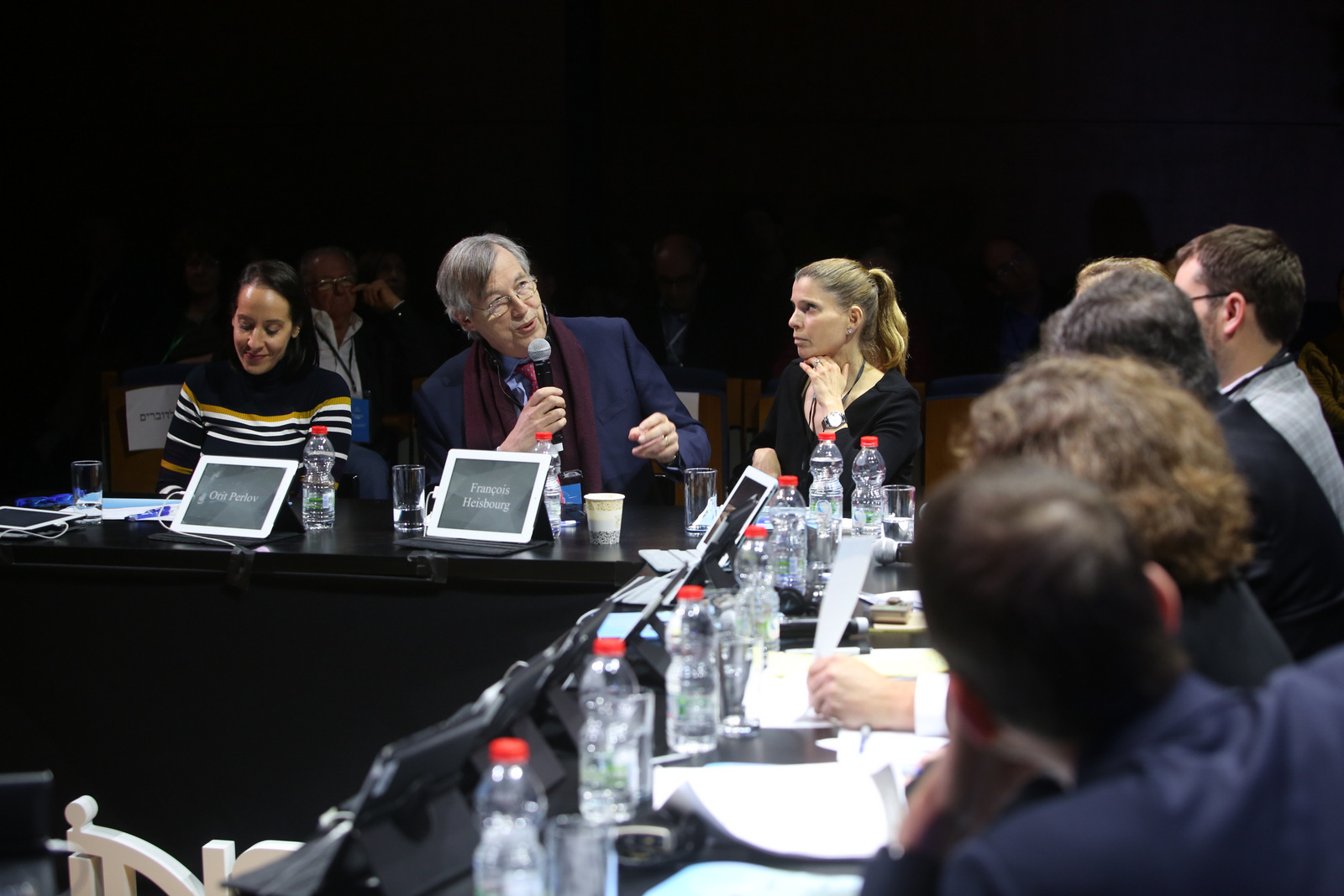
In this panel, we focused on what lies ahead for the Middle East. In 2011, there was optimism about the Arab Spring, and now in 2018, the region is still turbulent. Dr. Carmit Valensi presented three possible scenarios for the future: 1. A Shiite-Iranian hegemony in the region; 2. Sunni hegemony, led by Saudi Arabia; 3. A chaotic Middle East, characterized by civil war, ethnic tensions, lack of international involvement. The panel was asked to consider how these scenarios might impact the policies of Saudi Arabia, the United Sates, Iran, and Russia. The conclusions of the panel were not optimistic and predicted a chaotic Middle East in the future.
Dr. Michal Yaari, representing Saudi Arabia, emphasized that foreign policy and domestic policy are always in a dialogue with one another and dependent upon each other, and must be looked at together. She pointed out that the current ruler of Saudi Arabia is from the Y Generation and that two-thirds of the Saudi population are under the age of thirty and suggested that the younger generation does not care about the “Zionist occupier.” The young Saudi leadership might enable better relations with Israel. Importantly, Israel also could gain from economic relations with Saudi Arabia, but that currently, any relations need to be far from the public eye.
Dr. Suzanne Maloney, representing Iran, emphasized that Iran would adapt to any of the three scenarios because of the parameters of ideology, sense of threat to the regime, and the sense of opportunity that guide Iran. She suggested two additional scenarios: 1. Iran could transform completely into a different kind of regime, as reform has not been sufficient to meet the demands of the people; 2. a popular opportunist could push Iran into a more extremist regime.
Mr. Evgeny Piskunov, discussed the possible policy of Russia. Russia could neutralize the existential threats in the region affecting Russia, including the creation of a nuclear-free zone in the region. It could create an environment that allows Russia’s economic and technical capabilities to grow, it could consolidate its position in the world, and work for overall stability in the region. He noted that Russia will continue to resolve conflicts in the region, including the Israeli-Palestinian conflict and the Sunni-Shiite rift.
The Hon. Michèle Flournoy, taking the view of the United States, argued that it would be most concerned by the Shiite-Iranian hegemony in the region, as it would pose a threat to US interests, Israel, and its Gulf partners. In this scenario, the United States should enhance its US-Israel security cooperation; it should message Iran’s leadership directly and let them know the costs of their actions; the United States should rally the international community. As for the scenario of Sunni hegemony, the United states would support efforts to create a Sunni coalition, but it would depend on how it is done. In the chaotic scenario, the United States would withdraw from the region but would maintain a humanitarian commitment and encourage other allies to step in.
Mr. Chagai Tzuriel stated that these scenarios have already happened, and that there are really two scenarios, a balanced one and one that is unbalanced, which is the scenario in which we are now. There is an imbalance between Iran and the pragmatic Sunni camp and a between Russia and the United States. He argued that to move to a balanced scenario, Israel’s actions are important. The United States also must be involved in Syria and in an arrangement for Syria in order to counter Iran.
Ms. Orit Perlov, representing the Arab public, stated that the US role in the Middle East has ended for now, and that the United States is seen as betraying local allies in the region. She notes a bleak vision of the region: a population of half a billion expected in five years; average age is 24; and average age of leadership is 70.
Amb. Zvi Magen responded that Russia will accept both the Shiite-Iranian hegemony and the Sunni hegemony, but prefers the chaotic scenario.
Prof. François Heisbourg responded that the broader Middle East includes North African countries, and Algeria, which has more population and territory than Saudi Arabia, could be a problem for Europe in the future.
Amb. Prof. Itamar Rabinovich stated that his outlook was pessimistic, referring to the issue of demographic growth and the huge discrepancy between demography and resources. This will lead to instability, continued extremism, and migration to Europe. He also mentioned the beginning of Chinese diplomatic and military interests in the region.


